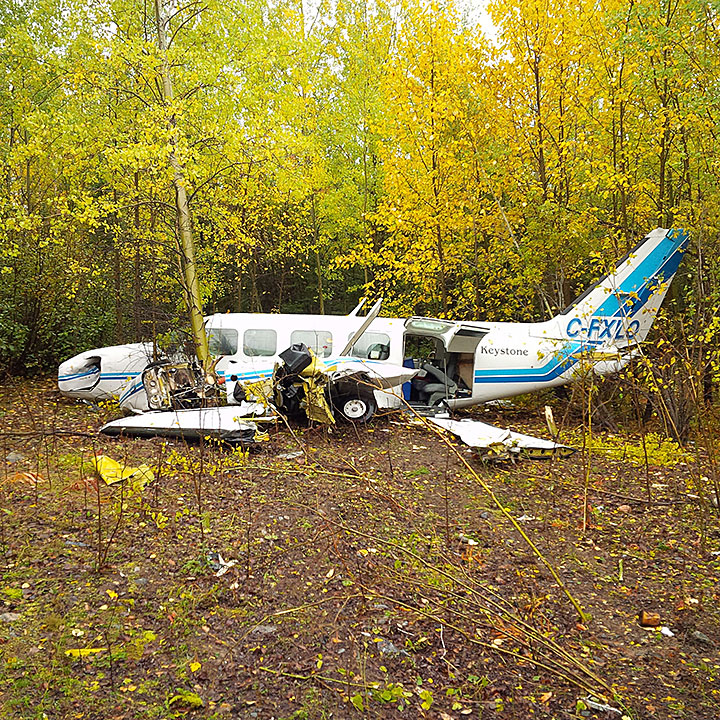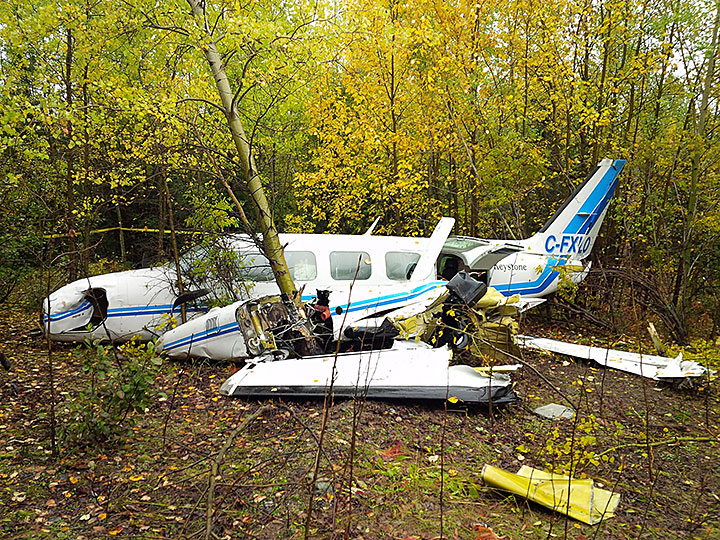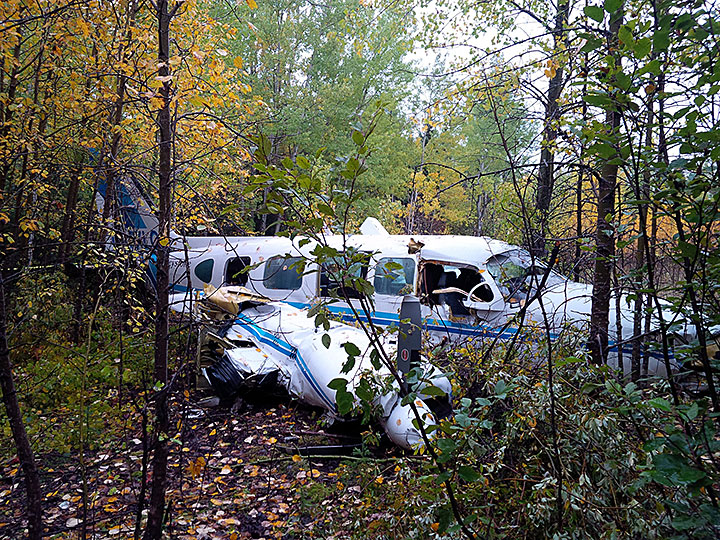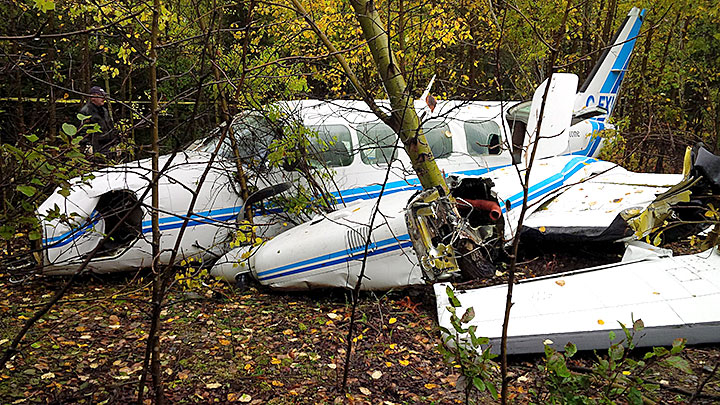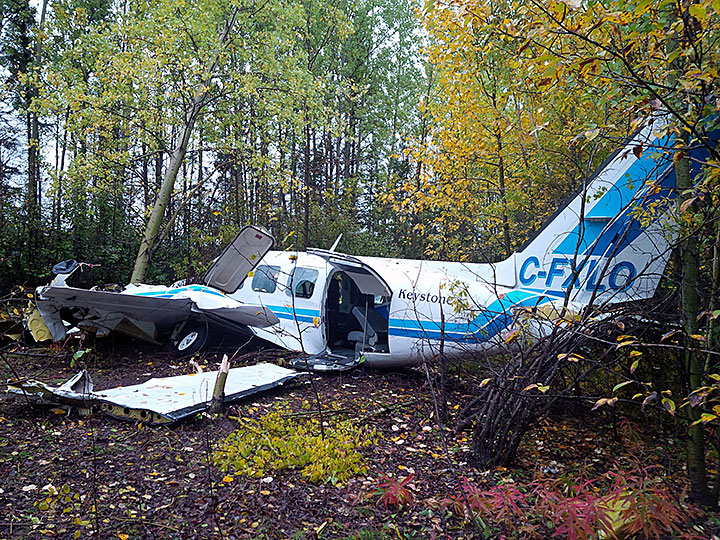Air transportation safety investigation A15C0134
The TSB has completed this investigation. The report was published on 06 September 2016.
Table of contents
Incorrect fuel type and forced landing
Keystone Air Service Ltd.
Piper PA-31-350, C-FXLO
Thompson, Manitoba, 1 nm SW
The occurrence
At 1817 Central Daylight Time, the Keystone Air Service Ltd. Piper PA-31-350 (registration C-FXLO, serial number 31-8052022) departed Runway 06 at Thompson Airport, Manitoba, on an instrument flight rules flight to Winnipeg/James Armstrong Richardson International Airport, Manitoba, with 2 pilots and 6 passengers on board. Shortly after rotation, both engines began to lose power. The crew attempted to return to the airport, but the aircraft was unable to maintain altitude. The landing gear was extended in preparation for a forced landing on a highway southwest of the airport. Due to oncoming traffic, the forced landing was conducted in a forested area adjacent to the highway, approximately 700 metres south of the threshold of Runway 06. The occupants sustained varying serious injuries but were able to assist each other and exit the aircraft. The emergency locator transmitter activated, and there was no fire. Emergency services were activated by a 911 call and by the Thompson flight service station. Initial assistance was provided by sheriffs of the Manitoba Department of Justice after a crew member flagged down their vehicle on the highway.
Media materials
News release
Incorrect fuel type led to September 2015 forced landing in a forest near Thompson, Manitoba
Read the news release
Deployment notice
Transportation Safety Board of Canada deploys team following air accident in Thompson, Manitoba
The Transportation Safety Board of Canada (TSB) is deploying a team to Thompson, Manitoba, where a Piper PA-31 Navajo operated by Keystone Air Service was involved in an accident. The TSB will gather information and assess the occurrence.
Investigation information
Map showing the location of the occurrence
Investigator-in-charge

Mr. Barrett joined the TSB in March 2010 as a Technical Investigator/Air in the Central Region office located in Winnipeg. He has over 40 years of maintenance experience on fixed and rotary wing aircraft.
Mr. Barrett holds an M1/M2 AME licence, and has held various positions maintaining numerous types of aircraft for operators in Alberta, Manitoba, and Ontario. Before joining the TSB, he was an instructor for four years in the Aircraft Maintenance diploma and apprenticeship programs at Red River College, Stevenson Campus, in Winnipeg. Since joining the TSB, Mr. Barrett has participated in numerous TSB investigations.
Photos
Download high-resolution photos from the TSB Flickr page.
Class of investigation
This is a class 3 investigation. These investigations analyze a small number of safety issues, and may result in recommendations. Class 3 investigations are generally completed within 450 days. For more information, see the Policy on Occurrence Classification.
TSB investigation process
There are 3 phases to a TSB investigation
- Field phase: a team of investigators examines the occurrence site and wreckage, interviews witnesses and collects pertinent information.
- Examination and analysis phase: the TSB reviews pertinent records, tests components of the wreckage in the lab, determines the sequence of events and identifies safety deficiencies. When safety deficiencies are suspected or confirmed, the TSB advises the appropriate authority without waiting until publication of the final report.
- Report phase: a confidential draft report is approved by the Board and sent to persons and corporations who are directly concerned by the report. They then have the opportunity to dispute or correct information they believe to be incorrect. The Board considers all representations before approving the final report, which is subsequently released to the public.
For more information, see our Investigation process page.
The TSB is an independent agency that investigates air, marine, pipeline, and rail transportation occurrences. Its sole aim is the advancement of transportation safety. It is not the function of the Board to assign fault or determine civil or criminal liability.
